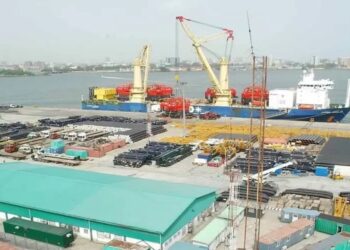The ongoing aggressive drug war being driven by the National Drug Law Enforcement Agency (NDLEA) draws keen attention to the mandate of the agency’s operations and results over the years.
Before now, the agency that is saddled with the responsibilities of monitoring the cultivation, processing, selling, exporting, trafficking of hard drugs and curbing the menace of drug abuse was weak in its operations.
This problem was largely attributed to lack of funding, poor equipment or working tools, logistics, lack of training, poor staff welfare and low morale.
It is a fact that no security agency as sensitive as NDLEA can fight crimes effectively, get result-oriented enforcement operations and actualise its mandate unless the challenges of dysfunctional equipment, lack of serviceable vehicles, modern gadgets for effective monitoring and intelligence gathering, among others, are addressed.
Before now, the operations of the agency were very frustrating. For instance, the agency used to engage the services of commercial motorcyclists to help in pursuing fully armed and dangerous drug peddlers, exercises that often ended in futility. This posed a huge drawback in counter narcotic operations. The use of common carriers exposes the operatives to high risk, a situation that led to the unfortunate loss of lives of many agents in the course of their official duty. This often demoralises personnel while carrying out this Herculean task.
Another issue was poor staff welfare, among which were delayed or denied promotion. There were backlogs of promotions between eight to ten years. Where it was done, it was alleged to have been done with disregard to guidelines or regulations.
One of the tools that the NDLEA and other relevant agencies need is sustainable training and development to enable operatives meet up with the core objectives of the organisation in line with modern nest practices. Imagine a scenario whereby staff deployed to forests do not have necessary weapons, gadgets for communication/surveillance with a view to tracking and arresting illicit drug offenders.
There were challenges of comprehensive and modern rehabilitation centers to manage cases of drug addiction and to ensure that addicts are well treated and properly re-integrated into the society, empowered for self-sustenance, and then contribute meaningfully to the growth and development of their community and the country at large.
It is only a few government-owned clinics that are adequately staffed and equipped for treating and managing health cases arising from drug addiction. Most of the privately-owned clinics are so expensive that they cannot be accessed by drug users, which is one of the reasons why we have patches of torturing and spiritual houses using all manner of crude therapeutic methods which, in most cases, end up counterproductive.
This is very disturbing because, the young men and women who are supposed to be future leaders are mismanaging and destroying their lives through consumption of all kinds of drugs.
It has been reported that over 10million youths and students in tertiary institutions are engaged in smoking of cannabis, lizard excreta, sniffing of pit toilets, petrol, animal dungs, sewages, glue, tramadol, rohypnol, diazepam, codeine mixtures, and pentazocine without knowing the health implications and hazardous effects of their actions. These have become a common lifestyle amongst youths all over the country.
The resultant effects are low academic performances, truancy, character bankruptcy and dementia suffered by consumers. It is rather unfortunate that children of all classes in our society are involved in these destructive practices. The well-do-do in the society have compounded the situation by concealing the involvement of their children and wards from being prosecuted for drug offences.
Many national and international reports have confirmed that drug abuse has been a major catalyst for the rise in rape, kidnapping, cultism, terrorism, armed robbery and banditry and other unwholesome vices perpetrated in the society.
Consequently, in order to correct these societal ills and restore sanity, there is therefore the need to appreciate the anti- drug agency’s position which, as it seems right now, has declared a state of emergency on drug abuse in the country. So far, the results are very remarkable and it should be sustained; however, there is a need to do more. The federal government should therefore weather the storms by providing necessary resources to support.
Having said all these, it behoves on the agency not to let the expectations of Nigerians down in terms of getting rid of drugs in the country. There is therefore the need to properly equip the agency, support its strategic thinking, as well as its overall efforts at revamping and repositioning it for maximum service delivery and general performances.
Once that is done, it will make it more effective and Nigerians can have respite from activities of drug barons. This is due to the fact that no individual or agency is capable of solving the problems associated with illicit drugs; it requires collective efforts by all stakeholders.





